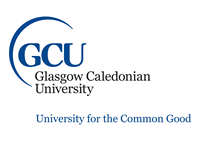Glasgow Caledonian University, The Glasgow School for Business and Society
Glasgow School for Business and Society | Glasgow Caledonian University | Scotland, UK (gcu.ac.uk)
Project reference number: GSBS/2023/001
Supervisory Team
Director of Studies: Dr Janet Greenlees
Email: [Email Address Removed]
GCU Research Online URL: (essential) https://researchonline.gcu.ac.uk/en/persons/janet-greenlees
Member of;
· Centre for the Social History of Health and Healthcare (CSHHH)
https://www.strath.ac.uk/humanities/schoolofhumanities/history/centreforthesocialhistoryofhealthhealthcare/
· Scottish Poverty and Inequality Research Unit (SPIRU) https://www.gcu.ac.uk/aboutgcu/academicschools/gsbs/research/spiru
2nd Supervisor: Dr Katy Proctor
Email: [Email Address Removed]
GCU Research Online URL: (essential) https://researchonline.gcu.ac.uk/en/persons/katy-proctor-2
Co-convenor of;
Gender Research and
Equalities Network (GReEN) -
https://www.gcu.ac.uk/aboutgcu/academicschools/gsbs/research/gender-research-group
Background
This PhD examines the intersections between pregnancy, poverty and gender-based violence (GBV) in Scotland after the 1974 reorganisation of the Health Service, to understand the extent to which both service providers and pregnant women experiencing abuse felt health and welfare services met victim/survivor needs. An estimated thirty percent of GBV begins during the perinatal period with those living in areas of social and economic deprivation most likely to be victims. Combining oral history methodologies with archival research, this study traces changing legislation to understand how the public face of provision corresponded with victim/survivor experiences. Despite Scotland’s international reputation for its forward-thinking approach towards tackling GBV, little research has explored its development or whether the victim/survivor experiences reflected proclaimed improvements amid changing policies and practice. While political and ideological resistance to abuse that was associated with the women’s movement of the 1970s had been public, victim/survivors remained ashamed and silenced. The 1980s Thatcher Government advocated for patriarchal ‘family’ values and criminal justice and social welfare agencies were frequently unwilling to intervene in ‘domestic’ or marital relations. Often, they were hostile to or dismissive of abused women. At this time, Scottish politics reflected this view. It was 1992 before Scotland launched its first public anti-domestic abuse campaign ‘Zero Tolerance’. Furthermore, despite the requirement from the late 1990s that healthcare professionals ask about domestic abuse during the first antenatal appointment, a Scottish study in 2000 discovered that few healthcare professionals ever asked pregnant patients about abuse.
Both supervisors have extensive networks with relevant statutory and third sector organisations and are members of three research communities (see above), which the student can join.
How to Apply
This project is available as a 3 years full-time PhD study programme with expected start date of 02 October 2023.
Candidates are encouraged to contact the research supervisors for the project before applying.
Applicants are required to provide a detailed research proposal as part of the application process.
Guidance on Writing a PhD Research Proposal is available at Prospective students | Glasgow Caledonian University | Scotland, UK (gcu.ac.uk)
Please note that emails to the supervisory team or enquires submitted via this project advert do not constitute formal applications; applicants should apply using the on our Application Process page by choosing Social Sciences and an October 2023 start date. Please quote project reference number GSBS/2023/001 on your application.
The successful candidate should have a Master’s in History or related subject, preferably with experience in Oral History or other Qualitative Methodologies and ideally, some experience of working with marginalised groups.
Applicants shortlisted for the PhD project will be contacted for an interview within six weeks from the closing date . The closing date for applications is Friday the 21st April 2023.
Please send any other enquires regarding your application to: [Email Address Removed]

 Continue with Facebook
Continue with Facebook



